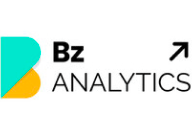AI-Driven Data Science Course – Get Certified & Land a Job in 6 Months
Advance your Career in Data Science with Entri Elevate. Equip learners with in-demand skills, Real projects, Trending Tools & Technologies. Enroll now!
Online
Placement Assistance


Overview of Our Data science Course
Entri Elevate offers a Professional Certificate Program in Data Science , which is a highly advanced certification course designed for learners. This comprehensive course is designed by industry experts and experienced trainers and provides hands-on exercises and projects that allow students to apply what they have learned to real-world scenarios. Upon completion, students will have gained a solid understanding of the skills and talents needed to build and deploy machine-learning models for various applications.

Practice Real-World Problems & Level Up with HackerEarth

Inclusive & Immersive Hybrid Training Sessions

Industry Expert Sessions

80+ Live & Recorded Sessions

Soft Skill Sessions

Industry Networking

Placement Training

Illinois Tech Certification
Data Science Skills Covered
Here are the top skills that will make you stand out in the field of data science
Data Science Placement Success: See Where Our Learners Work
Get a peek into the remarkable accomplishments of our aspirants.
Download Power BI Tutorial For Free 📥
Why Do Students Love Us?
Hear from Our Data Science Students!
Tools Covered
Illuminate the path to insights! Unlock the power of data science learning with these necessary tools!
Data Science Job Roles
What Exactly Does a Data Scientist Do? Lets Dive Deep into Roles!
Data Scientist
A data scientist collects, analyzes, and interprets large sets of data to identify patterns and trends. They use various tools and techniques to extract insights and make data-driven decisions. With a data science course, individuals can acquire skills in data mining, programming languages, and statistical analysis, making them suitable for this role.
Data Analyst
Data analysts gather, organize, and interpret data to provide valuable insights to businesses. They use statistical tools and techniques to identify trends and patterns and communicate their findings to key stakeholders. A data science course equips individuals with skills in data manipulation, visualization, and analytics, making them a perfect fit for this role.
Business Intelligence Analyst
Business intelligence analysts are responsible for studying data to uncover trends and patterns that can assist companies in making informed decisions. They employ a variety of data analytics tools to collect information from various data sources and present it in a format that can be easily comprehended by stakeholders. This position necessitates strong analytical abilities, business expertise, and excellent communication skills.
Data Science Course Curriculum
The Data Science course curriculum is available now. Covers stats, Preparatory Sessions, Python Programming, MySQL, PowerBI, Practical projects included. Enroll for a competitive edge.
- Introduction to Programming
- What is programming?
- Compiler,Interpreter
- Source Code
- Machine code
- Algorithms
- Editors
- Introduction to Data Science
- What is Data Science?
- Job Roles
- Terminologies
- Data Science Applications and its work flows
- Language Introduction and Installation
- Python history
- Python features
- python and pycharm installation.
- Python Basics
- Print command
- Comments,escape sequences
- Variables
- Data types
- User interactive command, operators
- Conditional and looping statements
- Selection statements
- Control statements
- Break and continue statements
- Nested loops
- Data Structures in python
Introduction to user defined data structures and non-primitive data structures:list,
dictionaries, set,tuples, strings and sequences,accessing and modifying elements in data
structures,comprehension: list, set and dictionary.
- Functions in Python
Defining functions, passing arguments to functions, different types of arguments, returning
values from functions, local and global namespace, lambda function, recursion, filter,
map,reduce, eval. Generators and decorators.
- File Handling and Exception Handling
File processing, Reading and writing files using ‘with’ statements. What is an Exception?,
raising and catching exceptions and handling errors gracefully using try-catch-finally.
- Object Oriented Programming
Introduction to OOPs, Classes and objects, inheritance and polymorphism, encapsulation
and abstraction.
- Modules in Python
Introduction to modules, importing modules, creating and using modules.
- Regular Expressions
Defining regular expressions, using regular expressions with python.
10.Pandas and Numpy
Introduction to Pandas library, reading and writing data with pandas, data cleaning and
exploration with pandas. Introduction to numpy, numpy basic operation.
- Data Visualization with Matplotlib and seaborn
Introduction, basic and advanced plotting technique
- Introduction to SQL
- Introduction to databases and database management system
- Overview of MySQL
- Installing and getting started with MySQL workbench.
- SQL Database
- Creating databases
- Dropping databases
- Introduction to tables
- Data types in MySQL
- Data Definition Language
- Introduction DDL commands
- Creating table
- Modifying table using ALTER, DROP, TRUNCATE, RENAME
- Data Manipulation Language
- Overview of MySQL SELECT statement
- Retrieving data
- Filtering and sorting
- Joining and combining data
- Updating and deleting data
- Inserting data
- Constraints(PRIMARY KEY, FOREIGN KEY, UNIQUE, NOT NULL.
- MySQL Functions and Joins
MySql built-in functions, inner, outer and self joins and combining data from multiple tables.
- MySQL subqueries and views
Subqueries and nested queries,creating and using views, normalization and denormalization
- MySQL stored procedures and triggers
Creating and using stored procedures and triggers, database security and user management.
Project
Build a simple database to help us manage the booking process of a sports complex. The sports complex has the following facilities:
- 2 tennis courts
- 2 badminton courts,
- 2 multi-purpose fields
- 1 archery range.
Each facility can be booked for a duration of one hour. Only registered users are allowed to make a booking. After booking, the complex allows users to cancel their bookings latest by the day prior to the booked date. Cancellation is free. However, if this is the third (or more) consecutive cancellations, the complex imposes a $10 fine
- PowerBI Introduction
- Introduction
- PowerBI
- Power query editor
- PowerBI service,
- Installation and configuration of powerBI desktop
- Connecting to data sources and loading data
- Data modeling in PowerBI
Understanding data modeling and relationships creating relationships between tables, building hierarchies and calculated columns, transforming using power query.
- Data Visualization in PowerBI
Understanding data visualization best practices, building basic visualizations(charts, graphs, tables etc..), formatting and customizing visualizations.
- Building Interactive reports
Using filters and slicers to create interactive reports, building drill-through reports and drill-down visualizations, creating bookmarks and scenarios.
- Creating Dashboards
Building dashboards with multiple visualizations, creating dashboards tiles and adding images, creating custom visuals using powerBI
- Data Analytics with PowerBI
Understanding data analytics and DAX language, creating DAX formulas and measures.
- Project
Financial Performance analysis: to optimize financial reporting in a firm that provides customers to track their financial health and productivity. Create data models and visualizations, and dashboards and present the project results and insights.
Data Science Blogs
Explore Trending Topics of Data Science
A data analytics project may be one of the requirements for receiving your degree. It could be challenging to select the top Data Science Projects for your senior year. If you don’t have a lot of free time, many of them have a steep learning curve and may not be the ideal choice.
Here are the list of the best books for data science beginners that will help you learn the subject better. We are also providing a brief description regarding all the picks so that you can pick depending on your convenience.
EDA makes sure that the proper patterns and trends are made available so that the model may be trained to produce the desired results, much like a good recipe. As a result, using the appropriate EDA tool and appropriate data will help accomplish the desired result.
Data Science plays a crucial role in addressing some of the world’s most pressing challenges, such as healthcare, climate change, and social inequality. As the demand for data scientists has increased, Let's read about the learning path to become a data scientist in 2025.
Eligibility /Pre-requisities
Anyone with an interest in data science can enroll in these courses. There is no specific educational background required. However, a basic understanding of mathematics, statistics, and programming can be beneficial.

Basic Programming Skills
Analyzing and interpreting complex datasets to uncover patterns, trends, and insights, enabling data-driven decision-making and solving business challenges effectively
_160.webp)
Logical thinking
Having the ability to think critically and approach problems analytically by identifying its key components, and understanding how they relate to each other.

Problem-Solving Skills
Formulate data-driven solutions, identify patterns and trends, and ability to apply logical thinking to solve complex problems with strong problem-solving and analytical skills.

Basic Mathematical skills
Mastering fundamental mathematical concepts, like algebra, calculus, and probability, is essential. These concepts serve as building blocks in data science and are applicable in various fields.
See Where Our Students Are Working!
Connect employers with a global network of recruitment partners to meet their hiring goals.
Why Live Sessions?
Live sessions on data science have several advantages that make them a valuable learning resource.
Real-time interaction
Live sessions allow learners to interact with instructors and peers in real time, promoting community and creating an environment for asking questions, receiving feedback, and learning from others.
Flexible and Convenient
Learners can participate from anywhere with an internet connection, making it easier to fit learning into their busy schedules. Also, if learners miss a session, recordings are often available for later viewing.
Up-to-date information
Live sessions are up-to-date with the latest trends and technologies. Instructors can share their expertise on emerging topics and provide insights into industry trends. This information helps learners stay current and competitive in the field of data science.
Affordability
Compared to traditional classroom-based training, live sessions are often more affordable, making them accessible to a broader audience. This affordability also makes it easier for organizations to provide ongoing training and development opportunities to their employees.

Your Mentors
Gain an edge in your career by accessing our team of experts who will provide invaluable guidance and support. Meet our team of mentors!
Data Science With Python Exam & Certification
Courses Recognised by


Frequently Asked Questions
Illinois certification validates your proficiency and expertise across various industries. It can enhance your credibility and positively impact your career growth, earning potential, and professional fulfillment. Obtaining Illinois certification opens up opportunities for career advancement and high-paying jobs, bringing ample career opportunities and enhancing your professional success.
Illinois certification is best for IT freshers. This certification program provides comprehensive training and education on various aspects of IT, including programming languages, software development, database management, and more.
Illinois certification helps freshers build a strong foundation in IT. It equips them with the necessary skills to succeed in their careers and to get better job opportunities with higher salaries.
What Our Students Are Saying
Enrolled by 15000 StudentsKey Learning Outcomes of Data Science Course
The key takeaways from the "Entri Elevate Data Science " course are as follows
Master the Latest Analytics Tools
Enhance your knowledge of the most popular analytics tools and technologies.
Empower Yourself with Data Science Skills
Develop the skills to use analytics and data science independently to solve business problems.
Mastering Business Insights
Learn to extract crucial business insights from data and present them clearly to stakeholders.
Predictive Modeling for Business Solutions
Build models that can predict future trends and leverage them to solve business problems.

Frequently Asked Question about Data Science Course
Coding Skill, Soft Skill and industry expert sessions will be 1 session per week. This will be multiple batches combined sessions to drive community engagement.
Find Your Program and Up-skill
Entri App Highlighted in the News
Advantages of Learning Elevate Data Science Course
Elevate Learning Experience
Student Support
Available all-day, using Slack for urgent queries.
Q&A Forum
Timely doubt resolution from peers and mentors
Expert Feedback
Personalized feedback on assignments and projects
Industry Networking
Live doubt clearing sessions with Industry Experts
Career Support
Personalized Industry Mentorship
Get personalized feedback and mentorship from an experienced data science specialist to enhance your career path.
Resume Review
Get personalized guidance on your resume structure and content.
Live profile-building workshops
Build your profile with hands-on sessions, whether on your résumé, GitHub, or Kaggle platform.
Explore Our Free Data Science Courses! 💻🎓
Coding Event Moments
Data Science Course in Cities
Who Can Apply For the Course
- Students
- Professionals
- Career Switchers
- Job Seekers
- House Wife
- Un-employers
- Freelancers



_7264.webp)


_1672.webp)
















_3609.webp)





_3693.webp)
_3556.png)

_7441.webp)









_8081.webp)






_5202.webp)



_2062.webp)

_9523.webp)


















_7366.webp)



_7758.webp)
_8019.webp)














_4240.webp)
_4466.webp)







